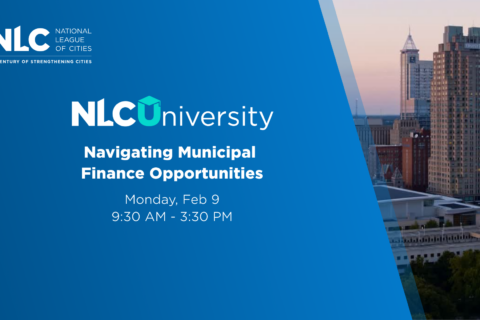Small businesses are the heartbeat of local economies. As of 2024, the United States is home to approximately 33.2 million small businesses, making up 99.9% of all U.S. businesses. These businesses aren’t just statistics — they represent neighbors, families and innovators shaping our communities. Entrepreneurship provides opportunities for individuals at many stages of life, from youth starting new ventures, to justice-involved individuals seeking to re-enter the workforce, to retirees in a new phase of life — and many in between.
Even more compelling is their role in job creation and economic contribution. Small businesses employ 46% of the private workforce. However, behind those big numbers lies a striking truth: many of these businesses operate on very modest incomes.
In fact, more than 86% of small business owners make less than $100,000 annually.
Among non-employer firms (those without paid staff), 78% of these owners earn less than $50,000 each year. That means millions of American entrepreneurs are not rolling in profit — they’re sustaining their ventures with personal funds, navigating uncertainty and striving for long-term stability.
So why should cities pay attention?
Small enterprises do more than keep the economy going. They give back. According to recent data, 68% of every dollar spent at a small business stays in the local economy, compared to just 43% for large retailers; small businesses also make up 44% of our national GDP. Moreover, 76% of small business owners volunteer their time, 90% donate money, and 63% offer in-kind contributions to local causes. In short, they reinvest in the places they call home. Yet too often, entrepreneurs face barriers that limit their economic mobility.
Take Jason Muhammad, founder of JM Emerging Leadership Development. Muhammad teaches leadership skills to nonprofit organizations and smaller corporations, especially those looking to promote internal talent. While he has strong credibility from his networking efforts in Asheville, NC, his recent move to High Point, about 2.5 hours away, left him struggling to rebuild visibility and momentum.
“It’s been stagnant,” Muhammad shared. “I’m not losing money, but I’m not gaining either.” His biggest challenge? Connecting with the right audience and finding the decision-makers who might hire his services. “Sometimes I wonder if it’s lack of knowledge or lack of courage. I don’t always know who to reach out to.”
Muhammad’s story is far from rare. He represents the many entrepreneurs with skills, services and motivation, but without the marketing dollars or ecosystem support to fully thrive. In fact, small business owners in growth mode rely on loans and other forms of support to keep their businesses thriving. For him, economic independence means owning his time and not needing a loan or permission to make a living. And yet, that goal feels just out of reach without the right help.
Here are five strategies city leaders can implement to support entrepreneurs’ economic mobility:
1. Expand Localized Marketing and Visibility Platforms
- Develop public directories and vendor spotlights to promote local talent.
- Offer city-funded marketing packages for videos, design, or social media support.
- Partner with local influencers or chambers to elevate entrepreneurs of color and niche service providers.
2. Help Navigate Local Ecosystems and Contracts
- Host “How to Do Business with the City” workshops with practical, step-by-step guidance.
- Share contact info for key procurement leads and outline how to qualify as a city vendor.
- Build inclusive pipelines that welcome service-based businesses — not just traditional brick-and-mortar or product-based enterprises.
- Consider setting up a “one-stop-shop” within your city or virtually, that has multiple resources for small businesses to learn about both local policies and requirements for their business as well as other resources and entrepreneurship support organizations (ESOs) in the community.
What This Can Look Like: Norfolk, VA
Norfolk, VA’s Biz Cafe Series runs community-based events hosted inside local small businesses. These informal gatherings give entrepreneurs a chance to exchange ideas, ask questions, and explore opportunities to navigate the local contracting ecosystem. They also strengthen connections among peers, partners, and potential collaborators — building a culture of support from the ground up.
3. Create Peer-Learning Networks and Coaching Circles
- Facilitate small business learning cohorts where local entrepreneurs can share experiences.
- Focus discussions on courage, confidence and clarity — not just capital.
- Invite entrepreneurs who have “been there” to mentor those just getting started.
4. Offer Bridge Funding and Microgrants for Growth Investments
- Provide flexible grants (e.g., $2,000 to $5,000) for marketing, legal setup or branding work.
- Connect entrepreneurs with pitch competitions and crowdfunding education.
- Make funding accessible — no complicated matches or rigid restrictions.
- Start a microloan fund that supports local businesses
What This Can Look Like: Lauderhill, FL
The City of Lauderhill, FL partnered with their Chamber of Commerce to hire a capital access manager and launch their Kiva hub, part of their “Prosperity Project” for small business owners. Through the creation of this Kiva microloan fund, the City seeks to help small business owners overcome longstanding barriers to traditional lending and gain access to capital.
5. Sustain Engagement After Business Relocation or Pauses
- Allow remote participation in business networks or events.
- Offer re-entry support for those returning to entrepreneurship after taking a job or being out of the workforce.
- Treat business success as a journey — not a single moment of launch.
By embracing these strategies, city leaders can directly impact the financial health, resilience and economic mobility of the small business community. Entrepreneurs like Jason aren’t just looking for charity — they’re asking for connection, visibility and a fair shot.
If cities want inclusive, vibrant and economically stable neighborhoods, they must center policies that lift up their small business ecosystem — especially the quiet hustlers doing big things on small budgets.
Small businesses may be small in revenue. But their impact? It’s anything but.
Innovative Strategies to Empower Small Businesses
Many city leaders agree that supporting small and minority-owned businesses is essential. Explore this collection of fact sheets for practical information local leaders can use to help businesses thrive.










